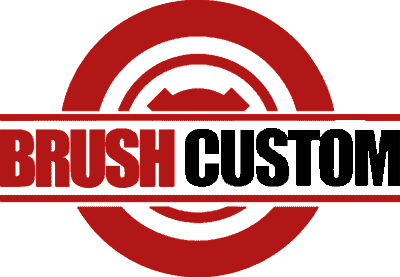
Want to customize industrial brushes for your application? If it is difficult to find a brush that fully meets your needs if you go to the mall directly, the best way is to find a brush manufacturer to customize a brush specifically for your application. If you need a large number of custom industrial brushes, then I suggest you choose a Chinese industrial brush manufacturer, compared to manufacturers from other countries, the brushes made in China are cheaper while maintaining quality. I will tell you the pros and cons of Chinese brush manufacturers so that you can better find the right Chinese industrial brush manufacturer for you.
Pros:
1. Cost-Effectiveness: Chinese manufacturers often offer competitive pricing due to lower labor and production costs, making their products more affordable compared to manufacturers from other regions.
2. Wide Product Range: Chinese manufacturers have a diverse range of industrial brushes, catering to different industries and applications. Their extensive product selection allows customers to find suitable brushes for their specific needs.
3. Customization Options: Chinese manufacturers often have the capability to customize brushes according to customer requirements, including materials, sizes, shapes, and bristle types. This flexibility allows for tailored solutions.
4. Manufacturing Capacity: China has a robust manufacturing infrastructure, enabling manufacturers to handle large-scale production demands. This ensures that customers can receive their orders in a timely manner.
5. Technological Advancements: Many Chinese manufacturers have made investments in advanced machinery and production techniques, enabling them to produce high-quality brushes that meet international standards.
Cons:
1. Quality Control: Maintaining consistent quality control across all Chinese manufacturers can be a challenge. Some manufacturers may prioritize cost-cutting over quality, leading to potential variations in product quality.
2. Intellectual Property Concerns: Intellectual property rights protection and enforcement in China have been a concern. Some manufacturers may not adequately protect or respect the intellectual property of others, leading to potential infringement issues.
3. Communication Challenges: Language and communication barriers may arise when working with Chinese manufacturers, especially for international customers. This can lead to misunderstandings, delays, and difficulties in conveying specific requirements.
4. Cultural Differences: Cultural differences in business practices, work ethics, and communication styles may exist when working with Chinese manufacturers, requiring patience and understanding to navigate effectively.
5. Distance and Logistics: Shipping and logistical challenges may arise due to the geographical distance between China and other countries. This can impact delivery times and increase transportation costs.
Additional Considerations:
1. Certifications and Compliance: Evaluate whether Chinese manufacturers adhere to relevant certifications and industry standards to ensure compliance with quality, safety, and environmental regulations.
2. Reputation and Customer Feedback: Research the reputation of specific manufacturers and seek customer feedback to gain insights into their track record, customer satisfaction, and reliability.
3. Supplier Selection: Consider conducting due diligence and carefully vetting potential suppliers based on their capabilities, experience, customer references, and overall reputation.
